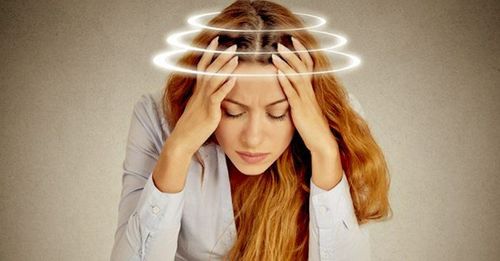1. What is cardiac neurosis?
“Cardiac neurosis” is a term used to refer to the “autonomic nervous system”. The autonomic nervous system is a nervous system that plays a very important role in the normal physiological activities of the body, it controls the activities of organs in the body automatically, independent of the brain such as the heart, blood vessels, stomach, intestines, liver, kidneys, bladder, heart rate, blood pressure, etc.
Cardiac neurosis is a condition in which the autonomic nervous system is disturbed, related to phenomena such as rapid heartbeat or slow heartbeat, easy to be nervous, dizzy, lightheaded, fainting or arrhythmia, high blood pressure, etc. In addition, the patient may also feel tired, pain, sharp pain in the heart or chest area, etc.

Cardiac neurosis is not a physical heart disease, meaning that the patient's heart is still healthy, without any damage to the heart, this is the reason why when going to the heart clinic, doing tests such as electrocardiogram, echocardiogram, the doctor often does not notice abnormalities any heart disease or injury.
2. Causes of cardiac neurosis
Causes of cardiac neurosis include:
• Psychological trauma, stress, anxiety disorders, emotional changes such as anger, fear, sadness, etc. are some of the causes of cardiac neurosis.
• Patients with myocardial ion concentration disorders: This often occurs when the patient has a fever, dehydration or side effects of medication.
• Lack of physical activity, use of stimulants such as alcohol, tobacco, strong tea, coffee, etc. are also causes of cardiac neurosis.
• Due to the impact of dust, the living environment is polluted.
3. Common symptoms of cardiac neurosis
Cardiac neurosis is a disease without physical damage to the heart, however, its symptoms are similar to the symptoms of most cardiovascular diseases. Cardiac neurosis has the following symptoms:
• Difficulty breathing: Cardiac neurosis causes the patient's chest diaphragm to malfunction and spasm, which makes the patient feel unable to take a full breath and the patient often tends to sit near the window to get fresh air.
• Patients often feel tired, unusually exhausted and often have difficulty recovering even after resting.
• Chest pain: This is a symptom that can occur at any age. When suffering from cardiac neurosis, patients often feel a dull, stabbing pain in the chest, this pain can be acute, come and go quickly but can also be chronic.
• Palpitations: This is one of the common symptoms of cardiac neurosis. When stressed or when exerting themselves, the patient often feels the heart beating abnormally and rapidly.
• Abnormal breathing: Patients often breathe quickly and deeply, always feel like they cannot get enough air into the lungs and want to faint.
• “Does cardiac neurosis increase blood pressure?” This is a question that many people are interested in, especially elderly patients. The autonomic nervous system is disturbed, causing the patient's blood pressure to increase, at this time the patient will feel dizzy, lightheaded, dizzy, unsteady or want to faint.

4. How is cardiac neurosis treated?
Non-drug treatment: Patients need to change their lifestyle in a positive direction:
- Minimize the use of stimulants such as alcohol, tobacco, strong tea, coffee, etc.
- Physical exercise: Physical exercise helps significantly improve psychological and health problems for patients with cardiac neurosis. When suffering from cardiac neurosis, patients should exercise regularly, when exercising, they should choose gentle, moderate exercises such as walking, yoga, swimming, etc.
- Cigarette smoke is one of the causes of cardiac neurosis, so to prevent and treat the disease, patients should not smoke and should advise their family members to quit smoking as soon as possible.
- Control your emotions well, do not be too emotional and stressed.
- Think positively, keep a comfortable mood, avoid stress and anxiety.
Drug treatment: The preferred drugs to treat cardiac neurosis are sympathetic beta blockers, sometimes accompanied by sedatives. When using these drugs, patients need to follow the doctor's instructions because if these drugs are used in the wrong dose or overdose, they will make the patient's tachycardia worse. Note that this group of drugs is contraindicated for patients with bronchial asthma and respiratory diseases because it increases the risk of bronchospasm.
Cardiac neurosis is a benign disease and can be treated. A healthy lifestyle can help prevent and relieve symptoms caused by the disease. If the above treatments are not effective, the patient should go to a medical center for examination and treatment as soon as possible.
Vinmec International General Hospital is an address for examination, treatment and prevention of diseases. When performing the examination process at Vinmec, customers will be welcomed and use modern facilities and machinery systems along with perfect medical services under the guidance and advice of good doctors, well-trained both domestically and internationally.
To arrange an appointment, please call HOTLINE or make your reservation directly HERE. You may also download the MyVinmec app to schedule appointments faster and manage your reservations more conveniently.
To arrange an appointment, please call HOTLINE or make your reservation directly HERE. You may also download the MyVinmec app to schedule appointments faster and manage your reservations more conveniently.








